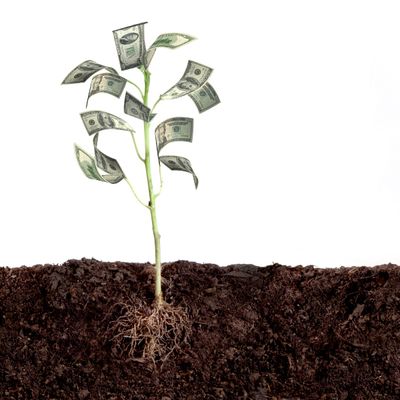
The food business has even more startups than the tech business: Every new restaurant, coffee cart, farm, dairy, and butcher shop is a story of micro-entrepreneurship. (In the case of restaurateurs who think very small, the advantages are clear.) The model is pretty straightforward: Come up with the idea, find the space, get the money, find your ingredients (preferably local and/or organic), sell your value-added product. But a new breed of owners are flipping the equation.
The most interesting large-scale food entrepreneurs are those who are building huge supply chains from scratch, and creating vertically integrated concerns that span the globe from farmer to consumer. They’re finding the ingredients and building the farms with millions of dollars worth of capital, then opening retail locations that will sell what they grow. The idea of growing a crop and then shepherding it through various processes and countries all the way to the final consumer is hardly new, of course. But it’s not generally how people start. It’s hard enough opening up a single restaurant or coffee shop; it seems crazy to try to do that while also creating dozens of other operations at the same time, especially when the failure of just one of them could doom the whole shebang.
Usually people in the food business try to nail down one aspect before moving on to the next. Steakhouse chain Le Relais de Venise, for instance, was founded by Paul Gineste de Saurs to provide an outlet for his family’s Château de Saurs winery, but only after the family had already mastered the wine-making part.
If you’re a Broadway and Hollywood star with money and a dream, however, there’s no need to go slow. Hugh Jackman’s Laughing Man Coffee & Tea does everything from growing coffee beans in Ethiopia to serving up a flat-white coffee (made with the same beans, naturally) on Duane Street in Tribeca, all while trying to build a business that will eventually generate substantial sums for educational charities. Jackman told Grub Street back in October that he hopes Laughing Man can grow into a brand as big as Newman’s Own, all started with a trip to a coffee farm in Ethiopia.
Maybe the most ambitious project to take this approach is Cacao Prieto, from Daniel Preston, an inventor who served as the CTO and CEO of Atair Aerospace until 2008. At its core, Cacao Prieto might appear to just be a chocolate company that started when Preston set up Brooklyn Cacao, which is devoted to designing, building, buying, refurbishing, fixing, selling, and generally dealing with the machinery needed to turn cacao beans into chocolate. Preston also set up a huge copper still to make what might be called the world’s first farm-to-bottle cacao-based rum. (You can buy it from Astor Wines, in fact.)
But while he was working on Prieto, Preston also set up Cacao Biotechnologies, a company that explores the antioxidant capabilities of cacao; and a farm in the Dominican Republic called Project Coralina that Preston thinks will revolutionize cacao farming in that country. (The country currently only produces 1.4 percent of the world’s cacao.) The whole operation is so massive, in fact, that it has nearly $10 million in equity holdings — $5 million of which was raised from outside investors — and has a formal filing with the SEC.
By growing their own raw ingredients from scratch, control-freak owners also cut out third-party purveyors. They have total command of their product’s quality from the very beginning, meaning they won’t have to worry about fluctuations affecting their supply.
Of course, to start a hugely ambitious project like Laughing Man or Cacao Prieto, it helps if you’re a millionaire aerospace executive, or one of the world’s most well-paid movie stars. But there’s something in the air right now, a feeling that with money cheap, it’s a good time to gamble. Banks like to play it safe in this industry, but there are lots of equity investors out there with the idea that there’s a small chance of hitting biotech gold. Which means the timing could be just right for a certain kind of food entrepreneur, the kind who thinks way big. Rather than building a business slowly with debt capital, they can build it fast with other people’s equity.
The risk-reward scenario on these kinds of projects is obviously much grander in scale than it is for the person who hopes to open a coffee shop in Brooklyn. Failure means potentially burning through tens of millions of other people’s dollars, and possibly ruining part of another country’s ecosystem. But success means a whole business built on a very solid foundation. Instead of the Chipotle model — building the successful business, then seeking to use size to influence more responsible farming practices — the sorts of businesses that are literally built from the ground-up can dictate their own supply initiatives from the get-go. If they’re successful, they might help change the way that food businesses get started — and help save the world while they’re at it.




